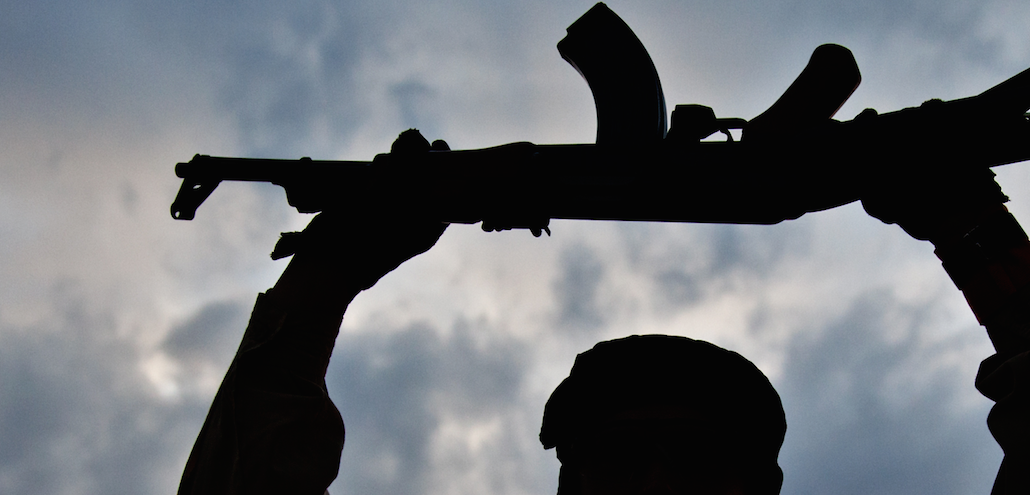Secure your place at the Digiday Publishing Summit in Vail, March 23-25

It’s a mobile payment company. It’s a murderous terror group. And they both want to rebrand — although for very different reasons.
Isis Wallet probably wasn’t thinking about it much when it launched in 2010, the product of a rare bit of collaboration among rival telecom companies AT&T, Verizon and T-Mobile. As CEO Michael Abbott wrote in an open letter in July, the company “wanted a brand that captured the simplicity of our mobile wallet experience.” Times change.
Fast forward to 2014, which has been marked by the rise of the Islamic State of Iraq and Syria, the barbaric militant terror group whose name is often shortened to ISIS. Needless to say, Isis Wallet has a problem on its hands. That’s why it’s on the hunt for a new name. Last month, the company said it was throwing in the towel on the Isis name, although a month later, it still hasn’t found a new one. Abbot (whose LinkedIn title says, simply, “CEO Isis”) wrote: “We have no interest in sharing a name with a group whose name has become synonymous with violence.”
But the problem persists.
@PayWithIsis How many innocent people have to die until I can remove this app from my phone? #ISIS
— Cold C. Combo (@TheColdCutCombo) August 26, 2014
Isis Wallet did not respond to a request for comment. The company is now eighth in Google search results when Isis is searched, beneath news of violence.
If there’s any consolation for Isis Wallet, it is that the company is not alone. Isis, after all, was once an attractive corporate name.
It is the name of the Egyptian goddess of health, marriage and love. Her name literally means “throne.” On the FX Show “Archers,” ISIS is a messy, underfunded spy agency. Let’s face it: Companies love a little mythology in a corporate identity. No surprise then that everything from a clothing line to a pharmaceuticals company adopted Isis as part of their company names.
One of the most unfortunate of the Isises is “ISIS for Women,” an outdoor clothes line that is definitely not approved for use by Islamists hell-bent on creating a new caliphate and subjugating women to the strictures of shariah law. The company’s site says it will “relaunch” this fall. No surprise there if the relaunch comes with a new name. ISIS for Women didn’t respond to a request for comment.
Already some companies have just moved on. A South Florida condo development project was christened Isis but has shifted to the far more neutral 3 Thirty Three Downtown.
Isis may have the worst connotations, but there are at least a couple of marketing companies with unfortunate nomenclature as well. Ebola Communications is a Ukrainian agency specializing in — you guessed it — “viral marketing.” Managing director of digital production Yaroslav Korets said he hasn’t had any problems because of the outbreak of the deadly disease. “The only exception is the message “SOS”” that he says the shop received via Facebook.
It seems to be a European trend: There’s also ad tech company Ebola Play of Budapest. It prides itself on branded content and social video distribution. CEO and founder Domonkos Bence said that rebranding has been high on the company’s priorities for a while and is now even more of a priority “in light of the current unfortunate situation.” “We want to avoid any misinterpretation of who we are and what we do in our business environment,” he said.
In the meantime, ISIS (the terrorists) also wants to rebrand itself — to “IS” (Islamic State.) The group is suffering its own problems, with people referring to it, confusingly as ISIS, ISIL or just IS. It prefers “IS,” because, as one expert told the Daily Mail, it sounds more “legitimate” and “organized.”
More in Marketing

Why Edward Jones’ agentic AI trial comes with limits
Edward Jones tests agentic AI to drive marketing productivity, taking a measured approach as it stops short of full automation.

Footwear brands navigate uncertainty after latest tariffs flip-flop
Some 99% of footwear sold in the U.S. today is imported, according to the Footwear Distributors and Retailers of America.

Brands at eTail Palm Springs share lessons on the ‘messy middle’ of building AI tools
Here’s a rundown of lessons brands have shared about their AI implementations so far.





